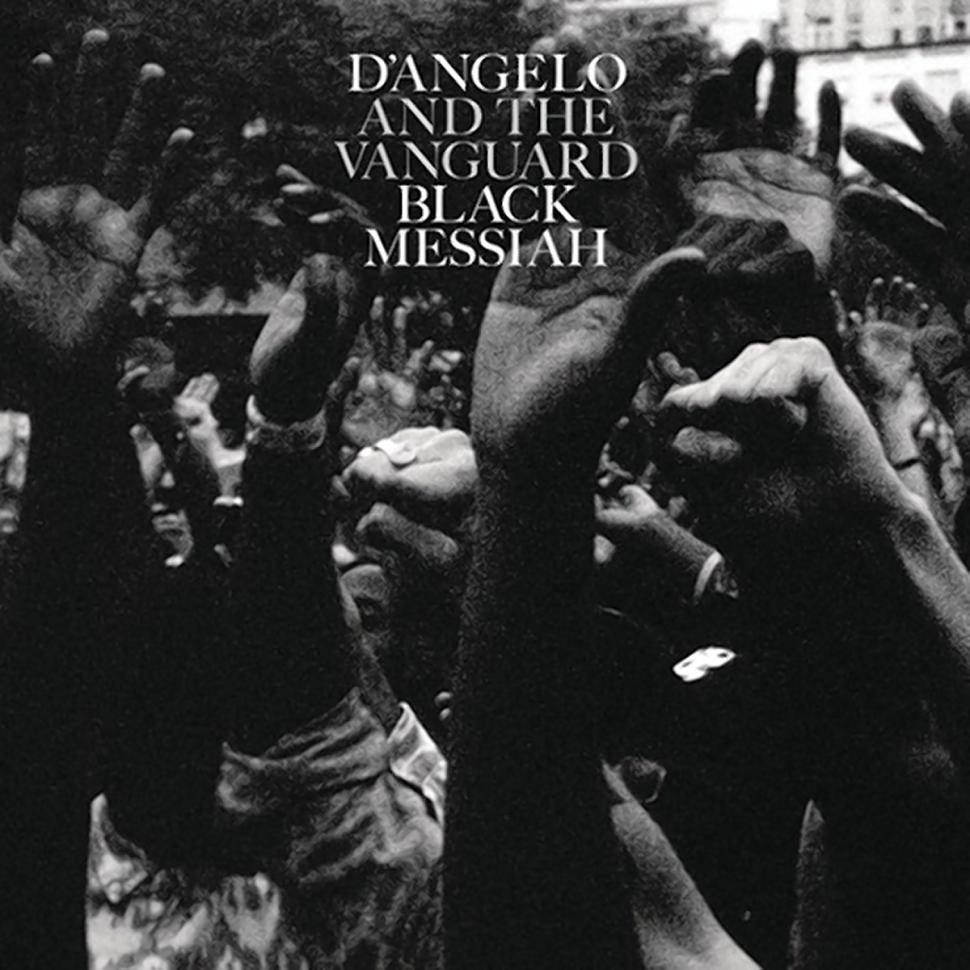Last week, D'Angelo released Black Messiah -- the third full-length studio album of his career, and first since Voodoo in 2000.
In the 14 years that have passed since D'Angelo's last album, a lot has happened. There were conflicts with his record label, Virgin. Then, there was also a long break, in which he completely disappeared from the music scene. After years of rumors, D'Angelo's third LP has finally been delivered. In a way, the simple fact that D'Angelo has been able to symbolically "come back from the dead" to release Black Messiah is a triumph worth celebrating on its own.
The 14-year wait for a D'Angelo album has been well worth it for many fans and critics. At the time I'm writing this, the album has received nothing but rave reviews with nearly perfect ratings across the board on Wikipedia, with a Metacritic score of 95.
After listening to the entire album several times in different environments and on different speakers, I have to say that I'm not as enamored with it as some critics are. I applaud D'Angelo for making such thoughtful and daring music, but I also have to say that for the most part Black Messiah simply doesn't sound that good to me -- a pretty important criteria for how I rate albums.
Black Messiah is being compared by some to Sly and the Family Stone's 1971 album, There's a Riot Goin' On. Both deliver strong social messages over a cosmic brew of funky R&B. Both albums are aggressive, dark, and noisy, but both albums also capture elements of gospel and a lot of soul. Compared to D'Angelo's earlier work, Black Messiah is certainly not nearly as relaxed as Voodoo or Brown Sugar.
This is pretty uneven album. Some parts are good, and some parts are not-so-good. It gets off to a strong start with "Ain't That Easy," which comes crashing down during "1000 Deaths." You can hear the grit of bands like Sly and the Family Stone as well as Parliament and Ol' Dirty Bastard. Black Messiah has one foot in tradition and another foot in experimentalism, which is a formula that I really like.
The Good
The album really picks up with "The Charade," a pessimistic view of modern society to say the least. The hot button topic of 2014 has been unprovoked police violence, and D'Angelo's chorus is as touching as it is sad:
All we wanted was a chance to talk
'Stead we've only got outlined in chalk
Feet have bled a million miles we've walked
Revealing at the end of the day, the charade
The album's first promoted single, "Really Love," is an intricately arranged and layered epic. The long intro contains lush orchestration that leads into flamenco guitar with a woman speaking conversationally in Spanish. The orchestration comes back in, and a drum & bass groove takes things back into familiar territory for D'Angelo. To me, "Really Love" is the best track on the album. This is the kind of music that's tailor made for sexy time.
I gotta say that I love how vinyl record sounds were included in this digital album stream. At the end of "Really Love" you can hear the sound of a turntable needle lifting, and then dropping on "Back To The Future (Part I)."
On "Back to the Future (Part I)" and "Back to the Future (Part II)," D'Angelo nods to those passed glory days with bluesy conviction. He sings, "I just wanna go back, back to the way it was," with a woozy, inebriated feel.
"Till It's Done (Tutu)" is another highlight, with references to pollution and the depletion of natural resources. Satisfying the need for those sexy songs, "Sugah Daddy" and "Betray My Heart" are silky smooth with great musicianship across the board. The guitar, bass, drums, keys, and horns lock in to create a powerful soulful tunes.
The Bad
First of all, D'Angelo's vocals have been so heavily overdubbed and processed that they lack the sweetness and human touch that I love in his other albums. The rich vocal harmonies of Voodoo have been replaced by boring (at best) and unpleasant (at worst) production on Black Messiah.
The change in D'Angelo's vocal style can be seen as an artistic decision. It can be seen as experimentation. More than anything else, I see it as maturity. Is it possible that years of drinking and drugging have hurt D'Angelo's vocal chops? The raspy quality and limited range I hear in D'Angelo's voice reminds me of how Bob Dylan's voice has transformed over the years.
Studio trickery helps D'Angelo sound more like Prince than he ever has, which is a logical progression for him. Is it a bad thing to sound like an imitation of Prince? It isn't the worst thing. Regardless of the reasons and inspirations behind the making of the album, I think the vocal sound is a weak point that can't be overlooked.
There are a couple weak spots on the album that I found especially difficult to listen to. "Prayer" is a song that sounds broken. The hi-hat work is jerky and inconsistent, and the groove is seemingly built around an unconfident hesitation. It's an interesting piece of art, but the type of track I would skip on a CD or a playlist.
"Another Life" is another weak song to my ears, even though I've seen other websites raving about it. The musicianship is good, and the song is pretty cool... but I just can't get into it. While the lyrics are romantic and sexy, the music sounds forced and lifeless to me.
The Verdict
If you can accept the fact that D'Angelo's vocals aren't as strong as they used to be, there is a lot of great stuff on this album. Playful grooves, food for thought, and food for the soul. This is a good listen with exceptional moments, but far from D'Angelo's best album.
Hopefully this is a sign of more good things to come from one of the all-time great singer-songwriters. D'Angelo has a number of tour dates in 2015 featuring The Vanguard Band: drummer John Blackwell, bassist Pino Palladino, Jesse Johnson, Isaiah Sharkey, and keyboardist Cleo "Pookie" Sample. Let's hope we'll be seeing a lot more from D'Angelo in 2015 and beyond.
Contributors on the album include musicians Questlove, Pino Palladino, and James Gadson as well as lyrics writers Kendra Foster and Q-Tip. D'Angelo produced the album himself, with Alan Leeds and Kevin Liles executive producing for the RCA record label.
Buy Black Messiah on Amazon (Vinyl, CD, MP3) and iTunes. You can also get the official full album stream above, via Spotify.
For D'Angelo's latest music, news, and tour dates, check out his Zumic artist page.










![image for article "The Documentary 2" - The Game [Official Full Album Stream + Zumic Review]](/img/resize/411x300/wp-content/uploads/2015/10/the-game-the-documentary-2-full-album-stream-zumic-review.jpg)

![image for article Great Drummers Break Down Ringo Starr's Style With The Rock & Roll Hall Of Fame [YouTube Video]](/img/resize/411x300/wp-content/uploads/2015/07/dave-grohl-ringo-star-hall-of-fame-tribute-video-2015.jpg)
